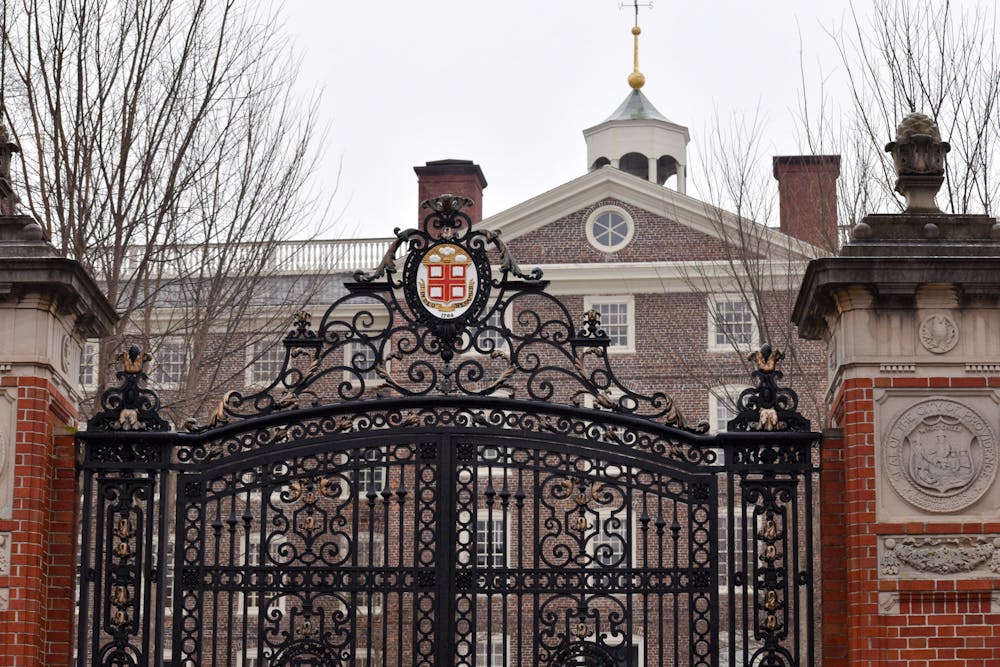The University and Graduate Labor Organization continued their negotiations regarding fiscal year 2023 stipend increases for graduate student workers in a March 2 meeting.
In response to GLO’s proposal for a 21% stipend increase at a meeting last month, the University offered a 4.25% raise and “several cash increases to the base stipend totaling about $1,500,” Alessandro Moghrabi GS, chair of GLO’s Bargaining Committee, told The Herald.
The University’s offer also includes a one-time $500 payment “in recognition of the continued impact of the COVID-19 pandemic,” wrote University Spokesperson Brian Clark in an email to The Herald.
GLO initially proposed a 25% stipend increase at a meeting in January, The Herald previously reported.
After the University initially made its counteroffer, GLO revised its demands to a 21% base stipend increase.
The 4.25% raise and cash increases together would amount to an effective 14.2% stipend increase for humanities and social sciences students and an effective 8.5% increase for students in the sciences, according to the University. But GLO disputes these figures.
The University’s offer “basically already include(s) stuff that we won last year and that they have to give to us anyway, as per contract,” Moghrabi said. The University’s calculation of effective pay increase, Moghrabi said, included a $1,500 “equity adjustment,” the 4.25% stipend increase and an increase to the standard summer base stipend across disciplines.
As part of last year’s agreement, GLO was guaranteed summer stipend increases and pay parity across disciplines, as well as a one-time $750 equity adjustment in FY23. Without those previously-secured raises, the effective pay increase is lower than what the University claims, Moghrabi said.
The University’s offer also included the “establishment of a position in the Graduate School focused on graduate student resource and financial advising,” the creation of a third-party committee to determine the cost of living for graduate students and the formation of a $500,000 “Financial Sustainability Fund” in order “to further aid graduate students in need,” according to the text of the University’s proposal. A committee comprising University, GLO and Graduate Student Council representatives would oversee the fund.
“We strongly believe that the graduate student stipends offered by Brown are fair, equitable and highly competitive and reflect the substantial investments we have made in graduate education over many years, including significant increases during the pandemic when most faculty and staff have experienced salary freezes and more modest salary increases,” Clark wrote.
GLO opposes the creation of both the financial advising position and the third-party committee that would determine the cost of living, Moghrabi said, describing those aspects of the proposal as “worrying and, frankly, somewhat insulting.”
“For weeks, we have been telling the administration over and over again that we know how much it costs to live as a graduate student, because we are graduate students,” Moghrabi said, noting that GLO has conducted “fairly extensive data-based research” on the matter.
The University’s own cost-of-living estimates vary widely from those of GLO, a discrepancy which, from the perspective of the University, the third-party cost-of-living committee would resolve.
While the University estimated expenses for graduate students in the 2021-22 academic year to be a total of $31,620, GLO said that these figures do not account for all expenses graduate students face, The Herald previously reported.
“We find it particularly insulting that (the University) blame(s) this on a difference of opinion,” Moghrabi said. “While they estimate living costs, we know our living costs. This just shows us that they are unwilling to listen to what we have to say.”
The proposal for a $500,000 sustainability fund also met resistance from GLO.
“It is just another bureaucratic wall,” said Kate Clark GS, GLO’s communications coordinator. She claims that a similar extant fund which allows graduate students to apply for up to $500 in emergency funding is difficult to access and that applicants are often “rejected without explanation.”
The University disputed these claims. Brian Clark wrote that emergency funding applications, available to all graduate students via UFunds, are reviewed and responded to within 72 hours.
“Since the start of the COVID-19 pandemic, the University has increased the emergency funding budget substantially in an effort to support students and to ensure continued academic progress is made,” Brian Clark wrote.
“Together, both our long-standing financial support for graduate students, the proposed increases in stipends and the proposed $500,000 fund represent substantial increases and investments to graduate education at Brown,” he added.
GLO representatives said they do not see the University’s offer as fair.
“What we saw this week was a proposal that really aggravated us, as well as all of the members that were present in the meeting,” Moghrabi said. “We will not budge on the committees that they proposed — we find those to be unacceptable. We want them to consider our demands more seriously.”
Stipend negotiations will continue in a March 9 meeting.
Charlie Clynes was the managing editor of digital content on The Herald's 134th Editorial Board. Previously, he covered University Hall and the Graduate Labor Organization as a University News editor.





